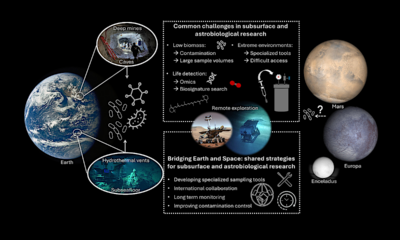Health
Study Uncovers Reasons Behind Self-Forgiveness Struggles

Research published in the journal Self and Identity in June 2023 has shed light on why some individuals struggle to forgive themselves for past mistakes. The study highlights the psychological mechanisms that trap people in cycles of self-blame while revealing how others manage to overcome guilt and move forward.
The moments we wish we could erase from our memory often haunt us. A careless comment, a decision that caused harm, or a missed opportunity to speak up can leave lasting impressions. For many, these instances replay vividly in their minds, making self-forgiveness feel unattainable. The new research indicates that the key to breaking this cycle does not lie in the severity of the mistake but in how individuals frame their experiences.
Researchers identified two distinct approaches to processing regret. Those who remain trapped in self-blame often view their past actions through a lens of personal failure. This perspective reinforces feelings of shame and guilt, leading to a spiral of negative self-assessment. In contrast, individuals who successfully navigate forgiveness tend to adopt a more compassionate viewpoint towards themselves. They recognize their mistakes as part of the human experience, allowing them to release the burden of guilt.
The study involved a diverse sample of participants, with a focus on understanding the psychological underpinnings of self-forgiveness. It explored various factors, including emotional intelligence, cognitive reframing, and the ability to empathize with oneself. Those who practiced self-compassion were notably better at reframing their experiences, viewing them as opportunities for growth rather than sources of shame.
Another significant finding was the role of social support. People with strong support systems were more likely to forgive themselves because they could discuss their feelings openly, gaining new perspectives. This interaction often helps individuals understand that others have faced similar challenges, normalizing their experiences and reducing feelings of isolation.
To facilitate self-forgiveness, the researchers recommend several strategies. These include recognizing the humanity in one’s mistakes, engaging in reflective practices, and seeking supportive relationships that encourage open dialogue about feelings. These approaches can help individuals shift their focus from self-blame to personal growth, ultimately leading to healthier emotional outcomes.
While the study presents compelling findings, it also opens avenues for further research. Understanding the long-term effects of self-forgiveness on mental health and well-being remains a critical area for exploration. The implications of this research extend beyond individual experiences, suggesting that fostering environments that encourage self-compassion could enhance community resilience and emotional health.
In conclusion, the journey to self-forgiveness is complex and deeply personal. By understanding the psychological mechanisms at play, individuals can better navigate their paths to emotional recovery. This research not only highlights the importance of self-compassion but also emphasizes the value of supportive relationships in overcoming guilt and shame.
-

 Technology5 months ago
Technology5 months agoDiscover the Top 10 Calorie Counting Apps of 2025
-

 Technology3 weeks ago
Technology3 weeks agoOpenAI to Implement Age Verification for ChatGPT by December 2025
-

 Health3 months ago
Health3 months agoBella Hadid Shares Health Update After Treatment for Lyme Disease
-

 Health4 months ago
Health4 months agoAnalysts Project Stronger Growth for Apple’s iPhone 17 Lineup
-

 Health4 months ago
Health4 months agoErin Bates Shares Recovery Update Following Sepsis Complications
-

 Technology5 months ago
Technology5 months agoDiscover How to Reverse Image Search Using ChatGPT Effortlessly
-

 Technology3 months ago
Technology3 months agoElectric Moto Influencer Surronster Arrested in Tijuana
-

 Technology5 months ago
Technology5 months agoMeta Initiates $60B AI Data Center Expansion, Starting in Ohio
-

 Technology2 months ago
Technology2 months agoDiscover 2025’s Top GPUs for Exceptional 4K Gaming Performance
-

 Technology5 months ago
Technology5 months agoRecovering a Suspended TikTok Account: A Step-by-Step Guide
-

 Health5 months ago
Health5 months agoTested: Rab Firewall Mountain Jacket Survives Harsh Conditions
-

 Lifestyle5 months ago
Lifestyle5 months agoBelton Family Reunites After Daughter Survives Hill Country Floods





















